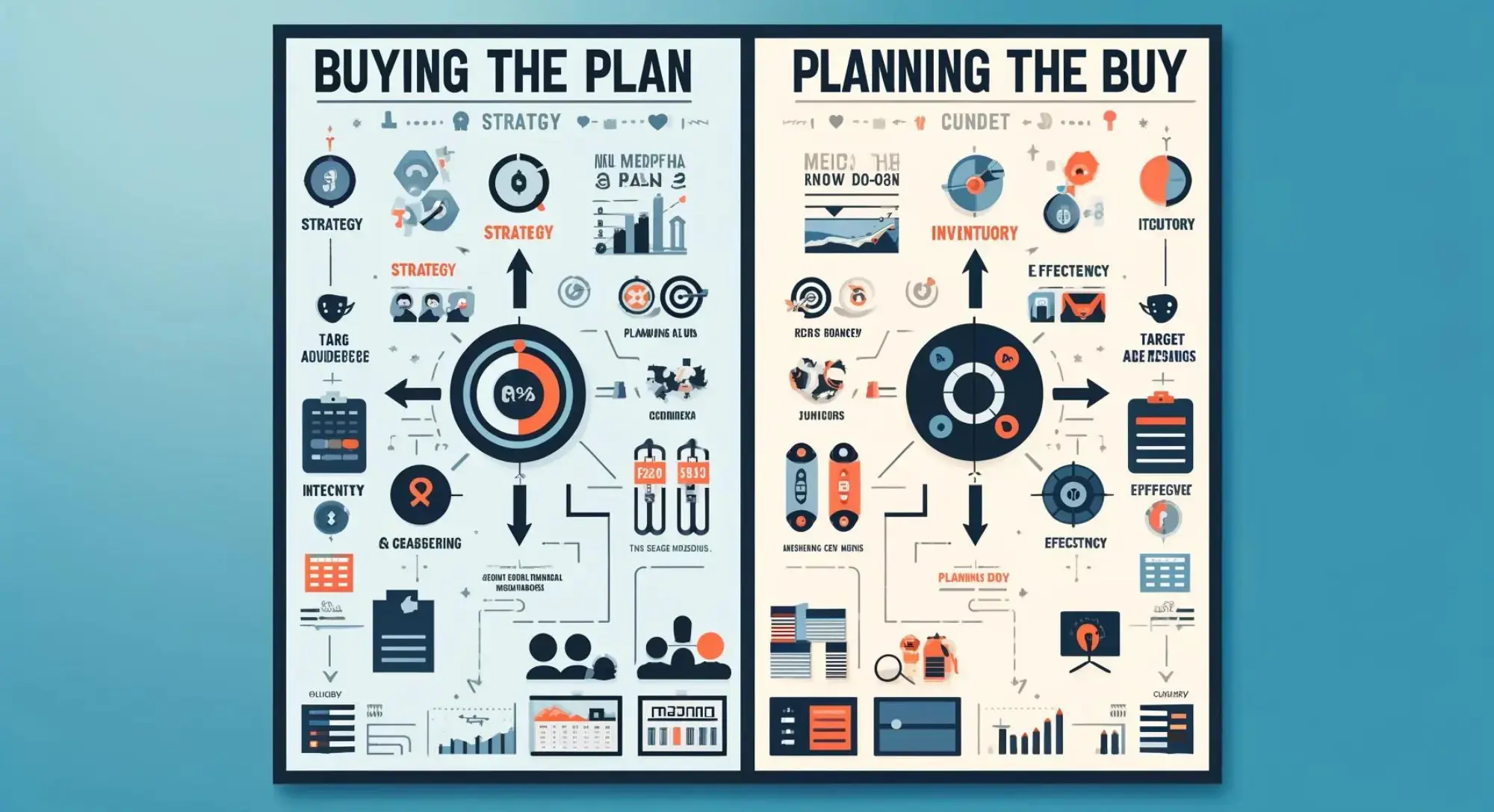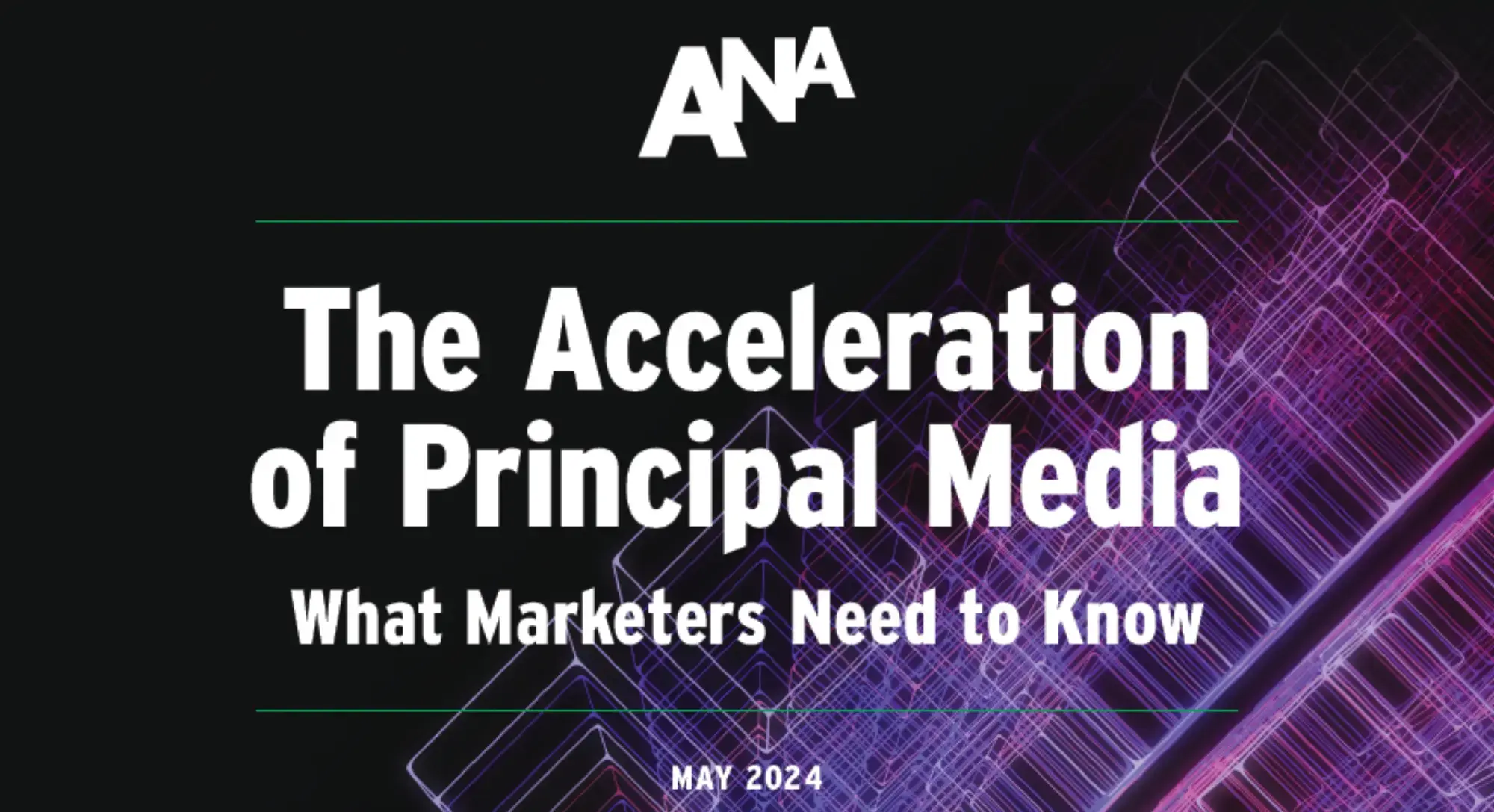As the co-founder of a global media consultancy, I've had the opportunity to audit numerous advertisers worldwide and gain a deep understanding of how media agencies operate.
Through my experience, I've discovered that while some agencies excel at "Buying the Plan," others fall short by "Planning the Buy."
In this article, we'll delve into the critical differences between these two approaches and explore how advertisers can ensure their media agency is working in their best interests.
So, let's unravel the mysteries of media planning and buying, and equip you with the knowledge to make informed decisions that will elevate your advertising game.
What is Media Planning and Buying?
Before we dive into the nitty-gritty, let's clarify what media planning and buying entail.
In a nutshell, media planning involves strategising the most effective ways to deliver your advertising message to your target audience.
It encompasses identifying the right media channels, determining the optimal timing and frequency of your ads, and allocating your budget accordingly.
On the other hand, media buying is the process of purchasing the media space and time slots needed to execute your media plan.
A well-executed media planning and buying strategy is crucial for the success of any advertising campaign.

Different Approaches to Media Planning
Now, here's where things get interesting. Not all media agencies approach media planning and buying in the same way.
Some agencies meticulously craft a media plan tailored to their client's specific needs and goals (as clearly described in the client's media brief), and then proceed to buy the media as per the plan. We call this approach "Buying the Plan".
However, other agencies may take a different route, opting to use their proprietary media inventory (also known as inventory media), which they've bought in advance, and then sell it to their clients. This approach is known as "Planning the Buy.".
Some agencies even use a combination of both approaches, which can raise concerns about the effectiveness and transparency of their practices.
The "Buying the Plan" Approach
Let's take a closer look at "Buying the Plan." This approach prioritises the advertiser's objectives and target audience.
The media agency starts by developing a comprehensive media strategy, taking into account factors such as the client's budget, target audience, and the most suitable media channels to engage their target audience.
They then create a detailed media plan outlining the specific platforms, ad formats, and scheduling that will maximise the campaign's impact.
Only after the plan is finalised and approved by the client does the agency move forward with buying the media as outlined in the plan.
This approach ensures that the advertiser's needs are at the forefront, and the media bought is aligned with their goals.
The "Planning the Buy" Approach
On the other hand, "Planning the Buy" is an approach where the media agency's priorities may not always align with the advertiser's best interests.
In this scenario, the agency has already purchased media inventory in advance, often in bulk and at discounted rates.
This inventory is known as "proprietary media." The agency then tries to sell this inventory to their clients, even if it may not be the most suitable or effective choice for the advertiser's specific needs.
In essence, the agency is planning their media strategy around the media they have already bought, rather than buying media based on a carefully crafted plan tailored to the client's objectives.
While this approach may seem cost-effective initially, it can lead to suboptimal results and a misalignment between the advertiser's goals and the media bought.
Consequences of "Planning the Buy"?
The consequences of "Planning the Buy" can be significant for advertisers. While the media bought through this approach may be cheaper, it may not effectively reach the intended target audience or achieve the desired impact.
For instance, let's say an agency has pre-purchased a large amount of advertising inventory on several small, niche TV channels at discounted rates. They then try to sell this inventory to a client who needs to reach a broad target audience to generate awareness for their brand.
In this case, the agency may plan a media buy that includes a high number of ad spots across these niche channels to meet the agreed-upon Gross Rating Points (GRPs) for the campaign.
However, while this approach may achieve the desired GRP levels on paper, it may not effectively reach the client's target audience, as these niche channels have limited viewership.
As a result, the client's advertising budget may be wasted on a campaign that fails to connect with their desired audience, leading to suboptimal results and missed opportunities to drive brand awareness and engagement.
The high frequency of ads on these niche channels may also lead to viewer fatigue and annoyance, potentially damaging the brand's reputation.
How Advertisers Can Identify Their Agency's Approach?
To get a clearer picture, advertisers should ask their agency direct questions about their media planning and buying approach. Some key questions to consider:
- How do you develop the media strategy and plan for our campaigns?
- Can you provide a detailed breakdown of the media bought, including the specific platforms, ad placements, and costs?
- Do you use any proprietary media inventory, and if so, how do you ensure it aligns with our campaign goals?
- How do you measure and optimize the performance of our campaigns?
By asking these questions and carefully evaluating the agency's responses, advertisers can gain valuable insights into whether their agency is truly "Buying the Plan" or "Planning the Buy."
Ensuring Agencies Are Buying The Plan
If you discover that your media agency is "Planning the Buy," don't panic.
There are steps you can take to ensure your agency starts "Buying the Plan" and prioritising your advertising needs:
- First and foremost, establish clear guidelines and expectations regarding the use of inventory media.
- Insist that any use of inventory media must be pre-approved by you, the client, and that the agency should provide a detailed explanation of the benefits it offers compared to traditional media.
- Request that your agency clearly labels any inventory media in their media plans and provides a clear justification for why it is being used and how it benefits your specific campaign objectives.
- Maintain an open line of communication with your agency, scheduling regular meetings to review media plans, discuss campaign performance, and address any concerns you may have.
- Consider implementing robust contractual agreements that include specific clauses addressing the use of inventory media.
Conclusion and Next Steps
Advertisers must ensure their agencies are working in their best interests. By understanding the difference between "Buying the Plan" and "Planning the Buy," you can make informed decisions that drive results.
To ensure your agency is "Buying the Plan," you need to review your media agency contract and check whether you have specific clauses addressing the use of inventory media.
If you do such clauses, you also need to ensure your media agency is being compliant with these clauses.
As a special offer, we provide a complimentary review of your media agency contract – a no-brainer for advertisers with concerns about this topic. Take advantage of this free service to gain insights and identify areas for improvement.
Take action today. Review your contract, communicate your expectations, and make necessary changes.
If you have concerns or want to use our free contract review offer, don't hesitate to reach out.
With the right strategy and commitment to "Buying the Plan," you can maximize your advertising ROI and achieve your goals.
Additional resources related to this topic:
- Understanding Agent vs Principal in Media Agencies
- Inventory Media - An Opaque Term That Leaves Advertisers Confused
- Decoding the Paradox of 'Proprietary Media': The Hidden Costs and Lack of Transparency
--------------------------------------------------------------------------------
About the Author
 Philippe Dominois is co-founder and CEO of Abintus Consulting, and Head Coach at the Abintus Academy. He has over 25 years of international media experience, having worked on the media agency side, client side, and media auditing side throughout his career. Philippe has authored hundreds of articles over the years that focus on media management best practices.
Philippe Dominois is co-founder and CEO of Abintus Consulting, and Head Coach at the Abintus Academy. He has over 25 years of international media experience, having worked on the media agency side, client side, and media auditing side throughout his career. Philippe has authored hundreds of articles over the years that focus on media management best practices.
Media Auditing Services: Click Here
Agency Pitch Management Guide: Click Here
Free Agency Contract Assessment: Click Here
Free Media Training for Advertisers: Click Here



